Diving is an exhilarating adventure that opens up a mesmerizing underwater world, but it also comes with its set of risks if not approached with the right knowledge and precautions. Whether you’re enrolling in Bali diving courses or seeking your scuba diving certification, understanding the fundamentals of diving safety is essential for enjoying a secure and memorable dive experience. This blog will guide you through critical safety tips that will not only enhance your skills during diving lessons but also prepare you for both open water diving courses and advanced diving courses, all while ensuring that you dive safely and responsibly.
Understanding the Basics of Diving Safety
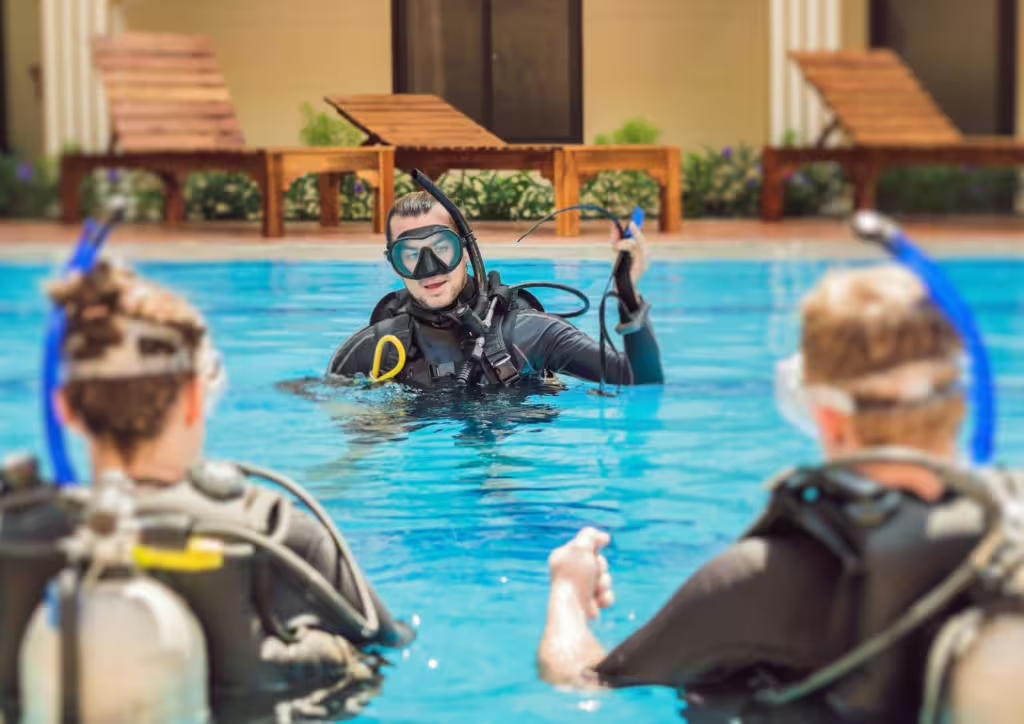
Understanding the basics of diving safety is crucial for every diver, whether you’re a novice or an experienced diver. Safety begins with proper training, which is why enrolling in a Bali diving course can significantly enhance your skills and knowledge. A licensed instructor will teach you about the necessary safety protocols, including how to manage your equipment, plan your dives, and communicate effectively underwater. Acquiring a scuba diving certification, such as through an open water diving course or an advanced diving course, provides you with the foundational information you need to assess dive conditions and ensure your safety.
Moreover, familiarizing yourself with local diving guidelines and environmental conditions is critical. Bali dive resorts often offer diving lessons that include information on potential hazards and the aquatic ecosystem you’ll encounter. Understanding the importance of equalizing pressure, monitoring your air supply, and recognizing your limits are all integral parts of a safe diving experience. In summary, harnessing your knowledge through a structured diving course not only prepares you for the underwater challenges but also contributes to an enjoyable and safe diving adventure in beautiful locations like Bali.
Choosing the Right Bali Diving Courses for Your Level
Choosing the right Bali diving courses is crucial for ensuring a safe and enjoyable dive experience tailored to your current skill level. For beginners, consider enrolling in a comprehensive Open Water Diving Course, which typically provides essential lessons covering basic dive theory, equipment usage, and safety procedures. Egypt’s beautiful waters, teeming with vibrant marine life, serve as an ideal backdrop for learning and refining your diving skills. Opting for a reputable Bali dive resort ensures access to certified instructors who prioritize safety while helping you earn your Scuba Diving Certification.
Additionally, these resorts often have a strong focus on environmental education, helping divers to appreciate and protect marine ecosystems. As you progress and gain confidence, you might explore Advanced Diving Courses offered by various Bali diving schools. These courses introduce more complex skills, including deep diving, wreck diving, and night diving techniques. By participating in tailored diving lessons, you can enhance your experience and broaden your diving capabilities while remaining conscious of safety protocols. Ensure that you choose a course that matches your abilities, as doing so will not only make your dives more enjoyable but also keep you safe in the fascinating underwater world of Bali.
Importance of Scuba Diving Certification
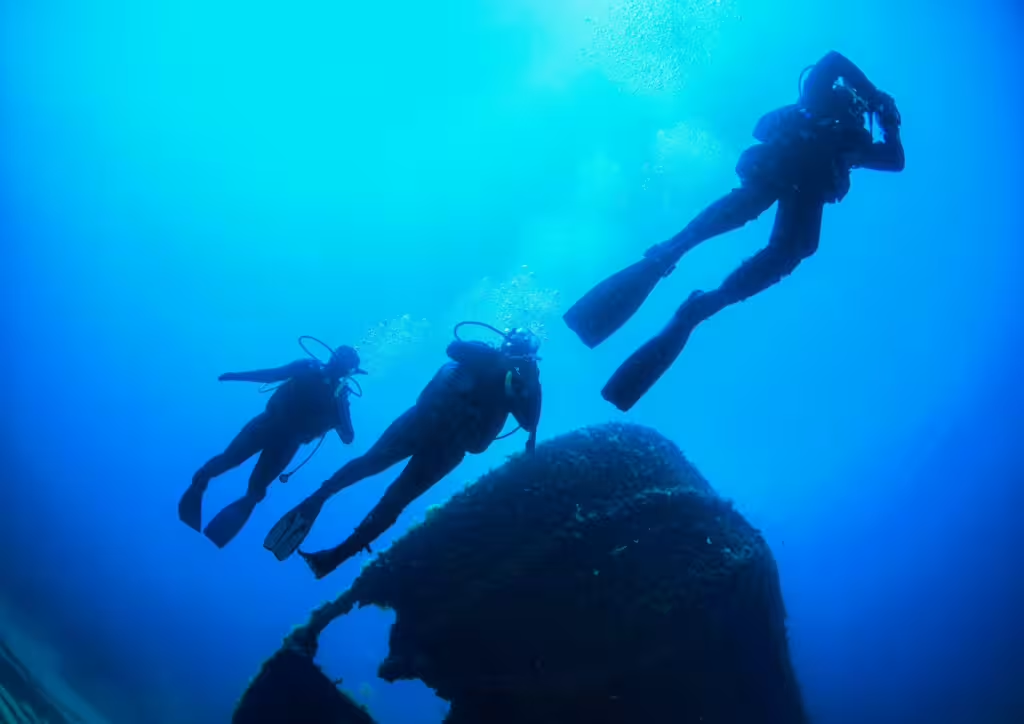
Obtaining a scuba diving certification is crucial for anyone planning to explore the underwater world, especially in popular dive destinations like Bali. Certification ensures that divers are equipped with the knowledge and skills needed to dive safely. Through courses such as the Open Water Diving Course, participants learn vital safety protocols, buoyancy control, and emergency procedures. These lessons not only enhance the overall diving experience but significantly reduce the risks associated with scuba diving. Dive resorts in Bali often require certification for certain dives, which underscores its importance for both the diver and the safety of their dive group.
Moreover, a scuba diving certification opens up a plethora of diving opportunities and locations. Pursuing advanced diving courses allows divers to explore deeper and more exhilarating dive sites, including wrecks and vibrant coral reefs, typically only accessible to certified individuals. Bali diving courses offer a range of certifications, from beginner to advanced levels, tailored to various interests and skill sets. By investing time and effort into obtaining your scuba diving certification, you ensure a safer and more enjoyable dive experience while expanding your horizons in the unique marine ecosystems Bali has to offer.
Preparing for Your First Diving Lesson
Preparing for your first diving lesson is an exciting yet crucial step in ensuring your safety and comfort while exploring the underwater world. Before embarking on this adventure, ensure that you’ve chosen a reputable Bali dive resort that offers well-structured Bali diving courses, which are essential for beginners. Whether you’re enrolling in an Open Water Diving Course or an Advanced Diving Course, make sure to review the course syllabus, instructors’ qualifications, and safety protocols. Arrange for any necessary medical check-ups to confirm your fitness for diving, particularly if you have existing health issues.
Don’t forget to pack appropriate gear and swimwear, as well as any personal items that will make your diving experience enjoyable. A good dive resort will provide rental equipment, but it’s always a plus to familiarize yourself with your own gear if you’ve already invested in it. Remember, being prepared is a key element in diving safety. Once you arrive at the dive site, take time to acclimate yourself before your lesson begins. Your diving instructor will guide you through essential skills and safety procedures during the session, which may include underwater communication gestures and buoyancy control techniques.
Embrace this opportunity to ask questions and clarify any uncertainties about your scuba diving certification path. Prepare mentally for the dive by visualizing success, and understand that each lesson is a building block toward your goal of mastering the underwater experience. By following these tips and remaining attentive to safety protocols, you’ll pave the way for a fulfilling diving journey, whether you’re undertaking your first diving lesson or continuing on to more advanced scuba diving adventures.
Safety Protocols in Open Water Diving Course
When enrolling in an Open Water Diving Course, adhering to safety protocols is paramount to ensure a secure and enjoyable experience underwater. Understand the importance of thorough pre-dive checks, including verifying your equipment and ensuring that your dive buddy is familiar with all procedures. Properly planning your dive, including understanding your dive site, depth limits, and conditions, is crucial. Make sure to communicate effectively with your dive group, using hand signals and other methods to ensure everyone stays informed and safe during the dive. Additionally, it’s essential to monitor your air supply and ascent rate to avoid issues such as decompression sickness.
Another significant aspect of safety in scuba diving is having proper training and certifications, obtained through accredited Bali Diving Courses or similar programs. Whether you’re taking a Diving Course for beginners or pursuing an Advanced Diving Course to enhance your skills, the knowledge gained is invaluable. Look for reputable Bali Dive Resorts that offer comprehensive Diving Lessons, which include safety protocols as a core component of their training. Ultimately, preparation and mindfulness are your best tools for ensuring a safe and memorable diving experience in the stunning waters of Bali.
Advanced Diving Course: What You Need to Know
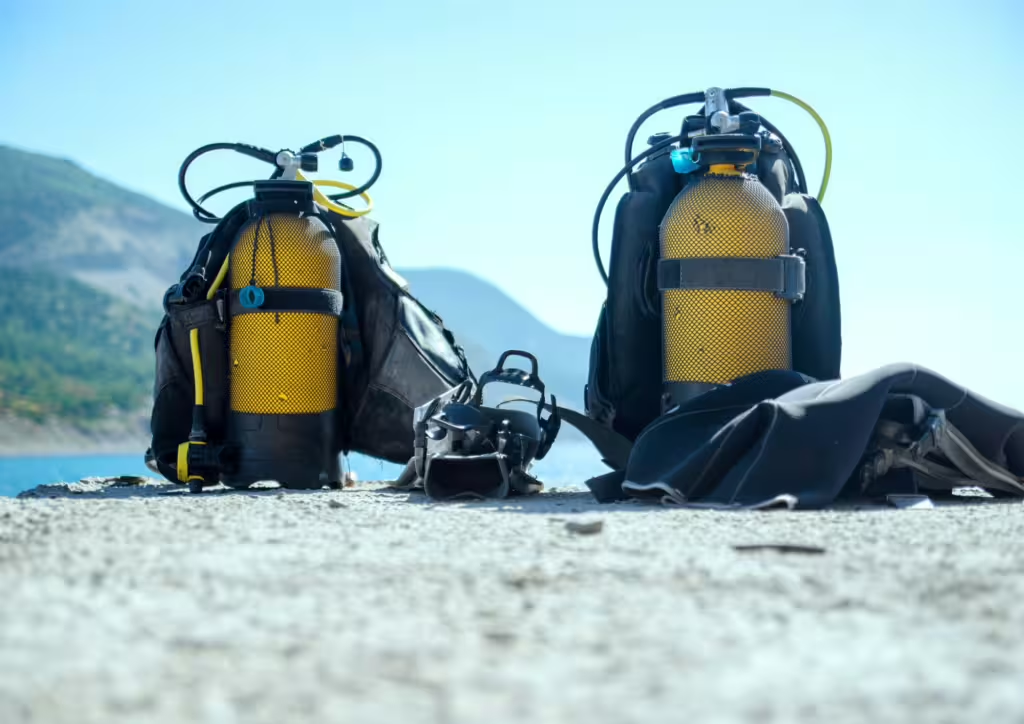
Enrolling in an Advanced Diving Course is a crucial step for any diver looking to enhance their skills and safety awareness underwater. This course typically builds upon the fundamentals learned in the Open Water Diving Course, empowering divers to better manage more complex dives and various environmental conditions. In Bali, a range of diving courses are offered that not only improve your diving techniques but also emphasize safety, ensuring that divers are prepared for unexpected situations.
Through practical lessons and supervised dives, participants will learn advanced skills such as navigation, deep diving, and emergency management. Understanding these techniques can significantly increase your confidence and enjoyment while exploring Bali’s breathtaking underwater landscapes. Moreover, opting for a reputable Bali dive resort can further elevate your advanced diving experience. The right resort guarantees access to experienced instructors, comprehensive lectures on safety protocols, and the necessary equipment for advanced dives.
Completing your advanced diving certification not only enriches your dive logs but also opens up opportunities for more thrilling dive sites that may have previously seemed daunting. Whether you’re aiming for a scuba diving certification to explore vibrant coral reefs or to engage in more challenging dives, an advanced diving course provides an invaluable education in the art of safe diving practices.
Essential Gear for Safe Diving
When it comes to safe diving, having the right gear is paramount. Essential equipment includes a well-fitting wetsuit or drysuit, which provides thermal protection and buoyancy while diving in diverse environments, especially in popular destinations like Bali, where tropical waters can range in temperature. A reliable mask and snorkel are critical for maintaining clear vision underwater, while fins help enhance your mobility. Moreover, a weight belt will assist in buoyancy control, a crucial factor for ensuring safety during dives. If you’re planning to take Bali diving courses, your dive resort will typically provide advice on the best gear suited for various diving lessons and certification levels, from basic to advanced courses.
Equally important is your diving computer, which keeps track of your depth and time underwater, helping you avoid decompression sickness. Along with this, a buoyancy control device (BCD) is essential to maintain your position in the water column safely. Additionally, ensure you have a surface marker buoy (SMB) for signaling your position when surfacing. Prioritize using quality equipment that is regularly maintained, which will not only enhance your dive experience but also ensure a safer adventure as you work towards your scuba diving certification through courses tailored for all levels, including an open water diving course for beginners and advanced diving courses for the more experienced.
Emergency Procedures and Signaling Underwater
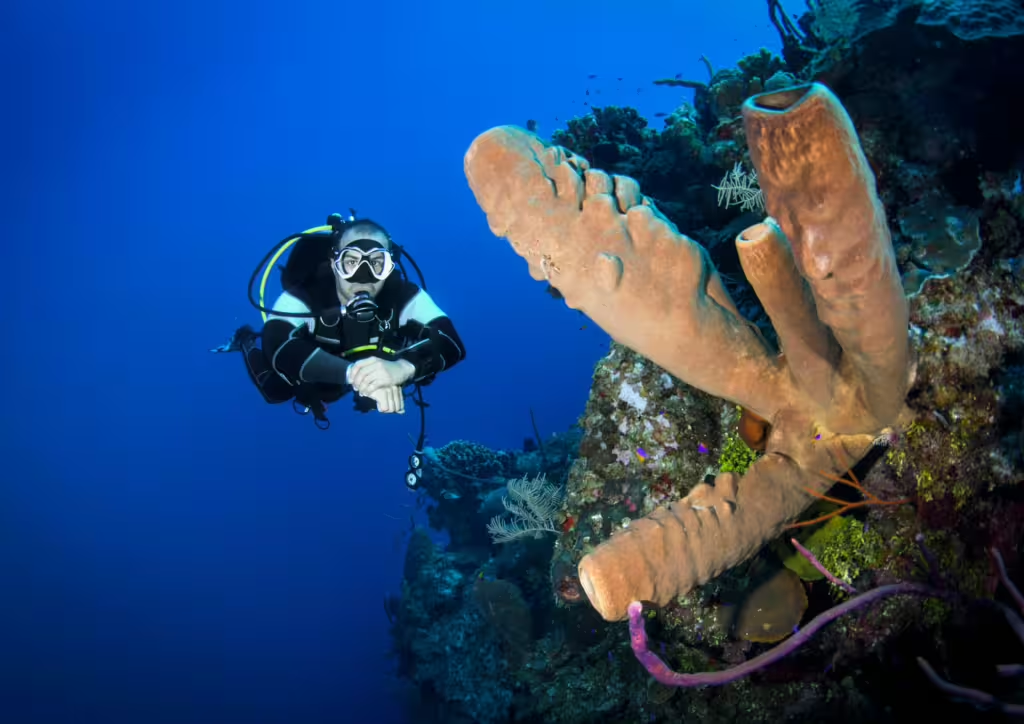
Understanding emergency procedures and signaling underwater is crucial for ensuring a safe diving experience, especially in vibrant destinations like Bali where the underwater ecosystem can be both beautiful and challenging. Before embarking on your diving adventure, it’s essential to familiarize yourself with the emergency procedures outlined in your diving course or certification program. Key aspects include knowing how to ascend safely, recognizing signs of distress, and understanding the protocols for equipment failures. Having a buddy system in place is equally important, as both you and your diving partner should know how to communicate effectively and respond to emergencies, thereby enhancing safety during your dives.
In addition to the standard emergency protocols, divers should also learn to use specific hand signals to communicate underwater. Non-verbal communication is crucial where sound is not effective, and clear signals can help prevent misunderstandings. For instance, signaling ‘okay’ or ‘problem’ needs to be mastered in your diving lesson to quickly convey your status to your partner. Advanced diving courses often delve deeper into these skills, providing scenarios and practice to ensure that divers are prepared to handle any unexpected situations, making your experience at a Bali dive resort not just thrilling but also safe.
Ensuring a Safe and Enjoyable Dive Experience
In conclusion, prioritizing safety is crucial when engaging in any diving activity, especially if you are exploring the breathtaking underwater world in locations like Bali. Whether you are enrolling in a Bali Diving Course, participating in an Open Water Diving Course, or achieving your Scuba Diving Certification, always adhere to the safety tips discussed. Proper training, staying aware of your surroundings, and maintaining your equipment can significantly enhance your safety and enjoyment while diving. Remember that diving should be a fun and exhilarating experience, and exercising caution ensures that you and your fellow divers can relish every moment in the vibrant marine life that surrounds you.
Moreover, don’t hesitate to seek guidance from professional instructors at reputable Bali Dive Resorts, who can provide you with valuable insights and training during your Diving Lessons. Their expertise can make a significant difference in your understanding of safety protocols and diving techniques, whether you are pursuing an Advanced Diving Course or simply looking to improve your skills. As you embark on your diving adventures, keeping these essential tips in mind will not only keep you safe but will also enrich your overall experience beneath the waves.

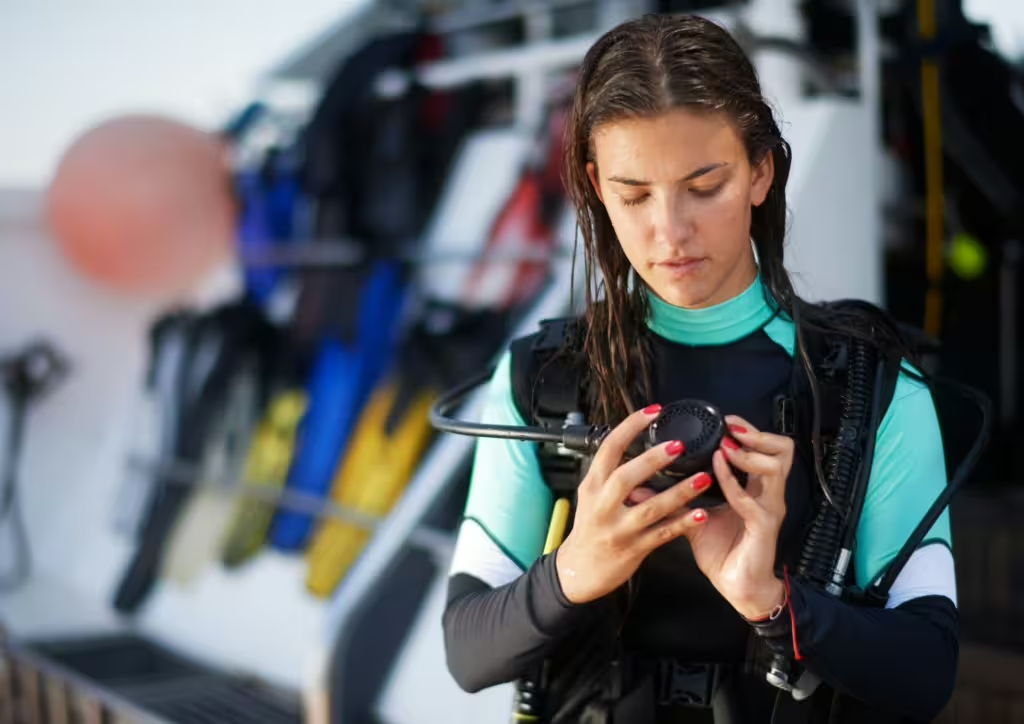
This blog post provides a comprehensive overview of diving safety protocols and certification processes. I’m impressed by the level of detail and expertise shared.
Thank you, Fatima! We’re thrilled that you found our blog post informative and insightful. At Pebble & Fins, we’re committed to providing the best diving experiences in Bali while ensuring the safety and well-being of all our guests. If you have any further questions or would like to learn more about our diving courses or certification programs, please don’t hesitate to reach out. We’d be delighted to assist you on your diving journey.
I appreciate how this blog post emphasizes the importance of proper training, equipment maintenance, and situational awareness for safe diving. It’s a great resource for both beginners and experienced divers.
Thank you so much for sharing your thoughts, Rizaluddin! We completely agree with you that proper training and equipment maintenance are crucial for safe diving. It’s great to hear that this blog post has been helpful in emphasizing these key points. If you have any more questions or concerns about scuba diving safety or want to learn more about our Bali dive courses, feel free to reach out! We’re always here to help.
This post is a valuable resource for anyone interested in diving. The information on scuba diving certification, emergency procedures, and equipment use is thorough and well-presented.
Thank you so much, Nor Azura Mohd! We’re thrilled to hear that our blog post on scuba diving safety was helpful and informative. If you have any more questions or concerns about diving in Bali or would like to share your own experiences, please don’t hesitate to reach out. We’re always here to help and provide advice. Looking forward to hearing from you again!